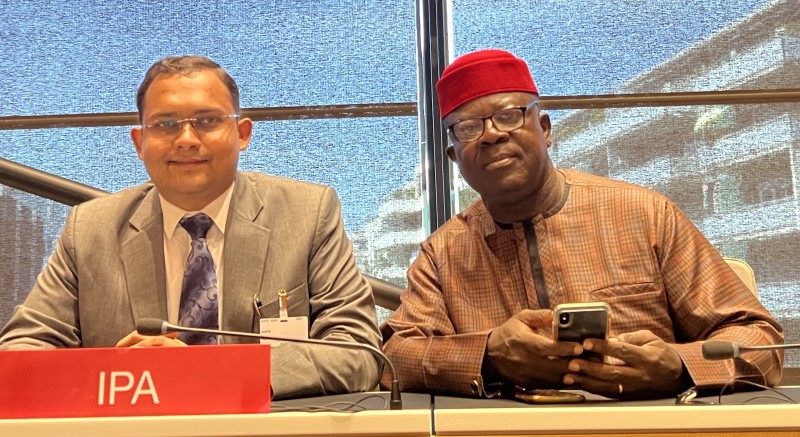Once the remarks regarding the African proposal had closed, delegates and observers had an opportunity to ask questions of the different experts who drafted reports for the SCCR in recent years (see past posts here and here).
IPA was quoted by the expert Raquel Xalabarder: Good copyright laws are those that are effectively enforced. And then said that exceptions could play a role in that. She made a point of underlining that exceptions can be remunerated.
The final session of the day started with the Chair welcoming the many questions and interventions from the observers while noting that Member States had been quiet so far and reminded them that the WIPO secretariat relies on their interventions to understand and follow up on different positions.
Observers lead the way in asking the different experts (Kenny Crewes, Rina Pantalony, David Sutton, Raquel Xalabarder and Yaniv Benhamou) about their opinions on a range of matters from the technical to the practical. Some of the experts underlined that they had refrained from making recommendations and restricted themselves to analysis, as recommendations are the remit of the Member States. Other experts underlined how the development of a binding international instrument could be extremely difficult, if not impossible given the diversity of exceptions and their implementation around the world.
The final observer to talk was Glenn Rollans from the Canadian Copyright Institute who was able to remind the Committee of the real impact of real exceptions on the creation of educational resources in Canada over the last 10 years. You can read more on that here. The experts delivered their final reflections urging quick progress and the identification of areas that are ripe for that kind of pragmatic progress, like preservation.
The day closed with a side-event organized by IFPI – the music industry unwrapped — underlining the fundamental importance of copyright in the global musical ecosystem and how the sector had evolved with the advent of streaming services.

